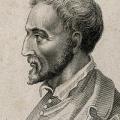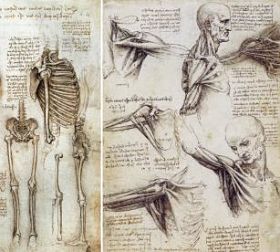362. Just What the Doctor Ordered: Renaissance Medicine
Connections between philosophy and advances in medicine, including the anatomy of Vesalius.
Themes:
• W.F. Richardson and J.B. Carman (trans.), Andreas Vesalius: On the Fabric of the Human Body (San Francisco: 1998).
---
• F. Bigotti, Physiology of the Soul: Mind, Body and Matter in the Galenic Tradition of the Late Renaissance (1550–1630) (Turnhout: 2019).
• J. Bylebyl, “The School of Padua: Humanistic Medicine in the Sixteenth Century,” in C. Webster (ed.), Health, Medicine, and Mortality in the Sixteenth Century (New York: 1979), 335-70.
• A. Carlino, Books of the Body, Anatomical Ritual and Renaissance Learning, trans. J. Tedeschi and A.C. Tedeschi (Chicago: 1999).
• A. Cunningham, The Anatomical Renaissance (Aldershot: 1997).
• G. Giglioni, “Health in the Renaissance,” in P. Adamson, Health: a History (Oxford: 2019), 141-73.
• H. Hirai, Medical Humanism and Natural Philosophy: Renaissance Debates on Matter, Life and the Soul (Leiden: 2011).
• I. Maclean, Logic, Signs and Nature in the Renaissance: the Case of Learned Medicine (Cambridge: 2002).
• K. Park, Doctors and Medicine in Early Renaissance Florence (Princeton: 1985).
• J. Sawday, The Body Emblazoned: Dissection and the Human Body in Renaissance Culture (London: 1995).
• N.G. Siriasi, Medieval and Early Renaissance Medicine: an Introduction to Knowledge and Practice (Chicago: 1990).
• A. Wear et al. (eds), The Medical Renaissance of the Sixteenth Century (Cambridge: 1985).







Comments
Add new comment